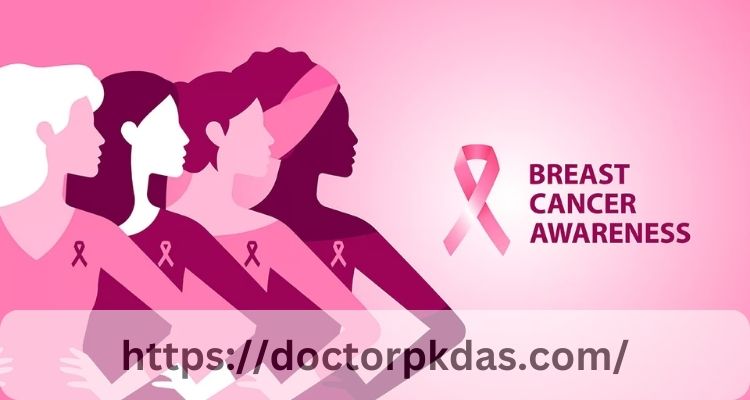|
Getting your Trinity Audio player ready...
|
Breast cancer is the most common cancer among women globally as well as in India. It is estimated that close to 2 lakhs new patients are diagnosed every year making it number cancer in India by Incidence. Therefore, raising awareness is crucial to improving prevention, early detection, and survival rates. Early diagnosis significantly increases the chances of successful treatment, making it vital for healthy individuals to be informed about risks and proactive steps.
Know the Risk Factors
While some breast cancer risks-like genetics and age-are be- yond control, others can be managed through lifestyle changes. Risk factors include:
. Family History and Genetics: Inherited gene mutations, such as BRCA1 and BRCA2, increase susceptibility.
• Alcohol Consumption: Research shows even moderate drinking
increases the risk of breast cancer.
. Obesity and Sedentary Lifestyle: Being overweight, particularly ranean diet) can also reduce risk, particularly after menopause. after menopause, is linked with higher cancer risk due to estrogen levels stored in fat tissue.

Prevention through Lifestyle Choices
• Stay Active and Maintain a Healthy Weight: Regular physical activity helps regulate hormones and reduce obesity, a major contributor to breast cancer.
• Limit Alcohol and Avoid Smoking: Smoking and excessive professional for any changes, such as lumps or skin changes, in alcohol consumption are linked to an increased risk.
. Breastfeed If Possible: Longer breastfeeding duration can provide a protective effect.
. Hormone Therapy Awareness: Women undergoing hormone replacement therapy should discuss alternatives with healthcare providers, as long-term use may elevate breast cancer risk.
A diet rich in fruits, vegetables, and healthy fats (like the Mediterranean diet) can also reduce risk, particularly after menopause.
Screening and Early Detection
Regular screenings, such as mammograms, are essential for catching breast cancer early. Women with average risk are encouraged to start regular mammograms from their 40s, but those with higher risk may need earlier or more frequent screenings. It is equally important to practice self-exams and consult a healthcare professional for any changes, such as lumps or skin changes, in breast tissue.
Make a Change Today
Awareness is the first step toward prevention. Adopting healthier habits and staying informed about screening guidelines could significantly reduce breast cancer incidence. If you have concerns or a family history of breast cancer, consider talking to your healthcare provider about personalized preventive strategies.

